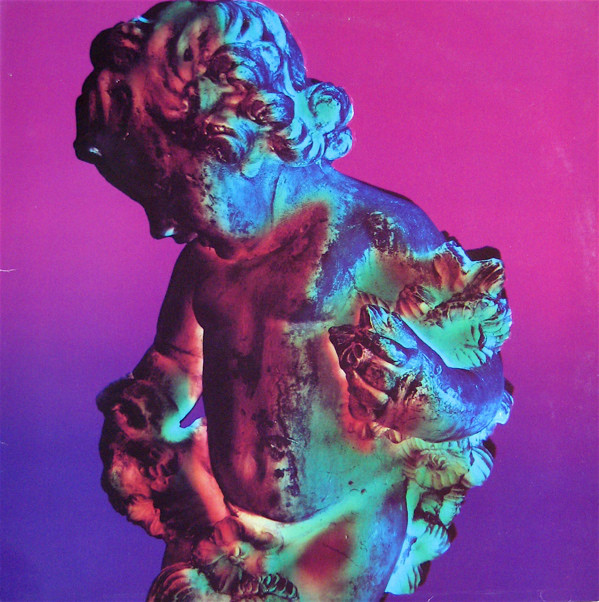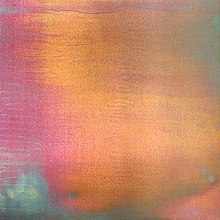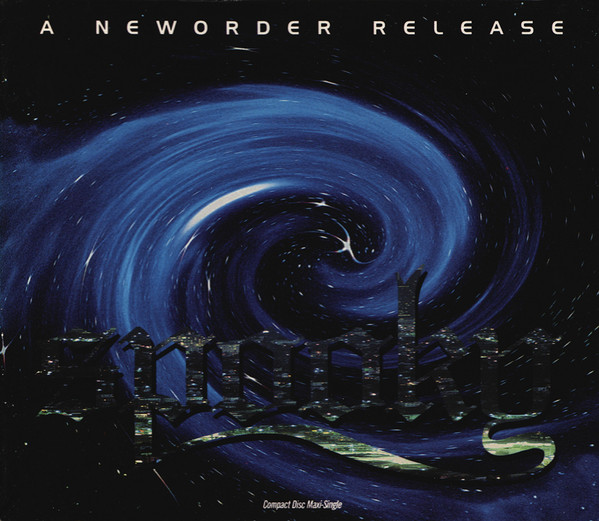![New Order - Fine Time [OFFICIAL MUSIC VIDEO] New Order - Fine Time [OFFICIAL MUSIC VIDEO]](https://img.youtube.com/vi/_BmIqF-yC2E/sddefault.jpg)
Rock and roll music
| Technique | ||||
|---|---|---|---|---|
 | ||||
| Studio album by | ||||
| Released | 30 January 1989 | |||
| Recorded | 1988 | |||
| Studio |
| |||
| Genre | ||||
| Length | 39:32 | |||
| Label | Factory | |||
| Producer | New Order | |||
| New Order chronology | ||||
| ||||
| Singles from Technique | ||||
| ||||
New Order - Fine Time [OFFICIAL MUSIC VIDEO] · Channel: New Order · 3m 22s
![New Order - Fine Time [OFFICIAL MUSIC VIDEO] New Order - Fine Time [OFFICIAL MUSIC VIDEO]](https://img.youtube.com/vi/_BmIqF-yC2E/sddefault.jpg)

All the Way (2015 Remaster) · Channel: New Order - Topic · 3m 25s

Love Less (2015 Remaster) · Channel: New Order - Topic · 3m 5s

New Order - Round and Round (Official Music Video) · Channel: New Order · 3m 55s

Guilty Partner (2015 Remaster) · Channel: New Order - Topic · 4m 47s
![New Order - Run [OFFICIAL MUSIC VIDEO] New Order - Run [OFFICIAL MUSIC VIDEO]](https://img.youtube.com/vi/nyaNMoam9KY/sddefault.jpg)
New Order - Run [OFFICIAL MUSIC VIDEO] · Channel: New Order · 3m 53s

Mr Disco (2015 Remaster) · Channel: New Order - Topic · 4m 22s

Vanishing Point (2015 Remaster) · Channel: New Order - Topic · 5m 18s

Dream Attack (2015 Remaster) · Channel: New Order - Topic · 5m 19s

Technique
New Order
Label: Factory · Studios: Mediterranean, Ibiza; Real World, Box · Productor: New Order
1989 studio album by New Order
Technique is the fifth studio album by English rock band New Order. Released on 30 January 1989 by Factory Records, the album was partly recorded on the island of Ibiza, and incorporates Balearic beat and acid house influences into the group`s dance-rock sound. The album was influenced by the then growing acid scene, and Sumner`s experiences at Shoom in London.[5]
Leer másReview
1989 studio album by New Order
Technique is the fifth studio album by English rock band New Order. Released on 30 January 1989 by Factory Records, the album was partly recorded on the island of Ibiza, and incorporates Balearic beat and acid house influences into the group`s dance-rock sound. The album was influenced by the then growing acid scene, and Sumner`s experiences at Shoom in London.[5]
Leer másTechnique was the first New Order album to reach number one on the UK charts, and "Fine Time", the first single from the album, reached number 11. Remixed versions of "Round & Round" and "Run" were also released as singles.
Album
Recording
In the late 1980s, the band felt that they had to keep on playing with dance-electronic rhythms. Bernard Sumner reflected; "We were in this position of being known for this dance-electronic sound and it would have been daft to have just stopped doing it. That was the nature of the time. The way I saw it was we were still writing band music as well, so we`d reached a compromise."[6] Peter Hook joked that the album was "an epic power struggle between the sequencers and me. I was resisting it valiantly, because I still wanted us to be a rock band."[6]
Sumner wrote all of the lyrics. When recording on the island of Ibiza, the band was heavily influenced by the environment around them and became fascinated by Balearic club music.[6] Gillian Gilbert recalled, "We had Mike (Johnson, engineer) with us, so there was always somebody doing something, but it was the beginning of us not being together in the studio when we were doing things. It was like, `oh you do your drums today, and I`ll do the vocals tonight...` The songs were sort of there but there were huge chunks missing. You`d leave blocks and say, `will you fill that in? I`m off now.`"[6] The band had chosen to record in Ibiza at Hook`s urging after a series of records made in "dark and horrible" London studios.[7] Stephen Morris described the sound of the Balearic beat clubs on the island they began to visit as "mad! They`d put an acid record on and then the next one would be a Queen one—it was schizophrenic, really. It`d be something really Spanish and then something really daft. It was a really odd mix but it all seemed to make sense when you were there. I don`t know why that was. Maybe because we were all a bit out of our brains."tbody,.mw-parser-output .col-begin>tbody>tr,.mw-parser-output .col-begin>tbody>tr>td{display:block!important;width:100%!important}.mw-parser-output .col-break{padding-left:0!important}}
Weekly charts
| Year-end charts
|
Certifications
| Region | Certification | Certified units/sales |
|---|---|---|
| Brazil (Pro-Música Brasil)[40] | Gold | 100,000* |
| Canada (Music Canada)[41] | Gold | 50,000^ |
| United Kingdom (BPI)[42] | Gold | 100,000^ |
| United States (RIAA)[43] | Gold | 500,000^ |
* Sales figures based on certification alone. | ||
1989 studio album by New Order
Technique is the fifth studio album by English rock band New Order. Released on 30 January 1989 by Factory Records, the album was partly recorded on the island of Ibiza, and incorporates Balearic beat and acid house influences into the group`s dance-rock sound. The album was influenced by the then growing acid scene, and Sumner`s experiences at Shoom in London.[5]
Technique was the first New Order album to reach number one on the UK charts, and "Fine Time", the first single from the album, reached number 11. Remixed versions of "Round & Round" and "Run" were also released as singles.
Album
Recording
In the late 1980s, the band felt that they had to keep on playing with dance-electronic rhythms. Bernard Sumner reflected; "We were in this position of being known for this dance-electronic sound and it would have been daft to have just stopped doing it. That was the nature of the time. The way I saw it was we were still writing band music as well, so we`d reached a compromise."[6] Peter Hook joked that the album was "an epic power struggle between the sequencers and me. I was resisting it valiantly, because I still wanted us to be a rock band."[6]
Sumner wrote all of the lyrics. When recording on the island of Ibiza, the band was heavily influenced by the environment around them and became fascinated by Balearic club music.[6] Gillian Gilbert recalled, "We had Mike (Johnson, engineer) with us, so there was always somebody doing something, but it was the beginning of us not being together in the studio when we were doing things. It was like, `oh you do your drums today, and I`ll do the vocals tonight...` The songs were sort of there but there were huge chunks missing. You`d leave blocks and say, `will you fill that in? I`m off now.`"[6] The band had chosen to record in Ibiza at Hook`s urging after a series of records made in "dark and horrible" London studios.[7] Stephen Morris described the sound of the Balearic beat clubs on the island they began to visit as "mad! They`d put an acid record on and then the next one would be a Queen one—it was schizophrenic, really. It`d be something really Spanish and then something really daft. It was a really odd mix but it all seemed to make sense when you were there. I don`t know why that was. Maybe because we were all a bit out of our brains."tbody,.mw-parser-output .col-begin>tbody>tr,.mw-parser-output .col-begin>tbody>tr>td{display:block!important;width:100%!important}.mw-parser-output .col-break{padding-left:0!important}}
Weekly charts
| Year-end charts
|
Certifications
| Region | Certification | Certified units/sales |
|---|---|---|
| Brazil (Pro-Música Brasil)[40] | Gold | 100,000* |
| Canada (Music Canada)[41] | Gold | 50,000^ |
| United Kingdom (BPI)[42] | Gold | 100,000^ |
| United States (RIAA)[43] | Gold | 500,000^ |
* Sales figures based on certification alone. | ||


























































